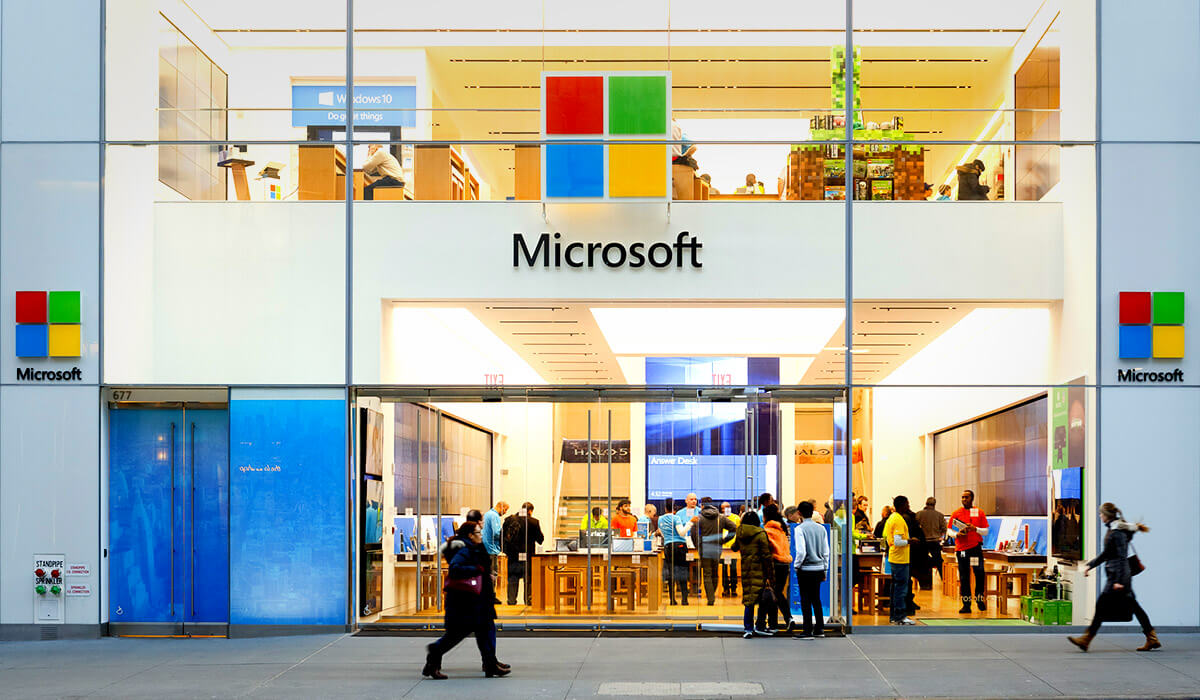Microsoft's cloud strategy has impressed. Apple's smartphone sales? Not so much.

Barring any further stock market shocks, Microsoft finishes the year ahead of Apple and Amazon as America’s most valuable publicly-quoted company, despite never making it to $1 trillion.
Microsoft is enjoying a little glory, having unexpectedly regained its position as America’s most valuable publicly-quoted company – albeit, I think, temporarily. It lost out to Apple and then Amazon in the race to be valued at more than a trillion dollars, and it hasn’t exactly risen to the top. In fact, in the last quarter, Microsoft’s value slumped by more than $100 billion.
As you will have noticed, American stock prices are undergoing a “correction” after a bull run that lasted almost a decade. Microsoft shares have declined along with the rest of the market. It’s just that shares in members of the FAANG group have fallen further.
FAANG stands for Facebook, Apple, Amazon, Netflix and Google (ie Alphabet). Jim Cramer from the Cramer’s Mad Money TV program originally picked out the FANG group of companies in 2013 as rapidly-growing stocks to watch. Microsoft wasn’t part of it, because its stock price had spent a decade going nowhere, even though Steve Ballmer had roughly tripled revenues and doubled profits after becoming CEO in 2000.
The FAANG idea caught on, and investors drove up the prices of FAANG stocks. When the market turned, they drove them down again.
Of course, there was more to the change in direction than sentiment. Facebook suffered the worst stock decline because of a troubled year under pressure for privacy failings and problems with Russian bots and fake news. Google suffered partly because of staff protests against working on military projects and possibly entering the search market in China. Apple suffered from a range of set-backs.
For example, Apple said it would stop providing unit sales numbers for its major products. With unit sales of iPhones, iPads and Macs all past their peak, analysts worried that further declines were likely. These fears were exacerbated by news of Apple suppliers scaling back forecasts, and by analysts predicting lower sales of the latest iPhones.
Apple’s share price also suffered because of worries about the impact of America’s trade war with China, where its products are manufactured.
Microsoft’s share price was more resilient, for two main reasons. One was Azure’s success in cloud computing, which is seen as a reliable source of future profits. Another is faith in Satya Nadella as a long-term CEO who has already turned the company around. (Microsoft has only had three CEOs – Gates, Ballmer and Nadella – in 43 years.)
Either way, the stock prices tell the story. At the time of writing, Microsoft’s share price is only down by $18 to $98, compared to its 52-week high of $116. In comparison, Apple’s is down by $81 to $152, Google’s by $283 to $1,009, and Amazon’s by $640 to $1,411. Which means Microsoft is down by less than 15 percent while others are down by more than 30 percent.
The net result is that Microsoft now has a market capitalization of $752 billion. This is still a long way short of $1 trillion, but it’s narrowly ahead of Apple ($720bn), Google/Alphabet ($706bn) and Amazon ($690bn).
Facebook ($378bn) and Netflix ($106bn) are much smaller companies and not in the race.
Both Apple and Amazon have bigger annual revenues than Microsoft, and Apple is making three times as much money (table, below). Since a company’s share price represents the discounted value of its future profits, you should expect Apple to have a bigger market cap, in the long run. However, share prices are not necessarily logical, and as British economist John Maynard Keynes observed, “In the long run we are all dead”.
Reference: zdnet.com

